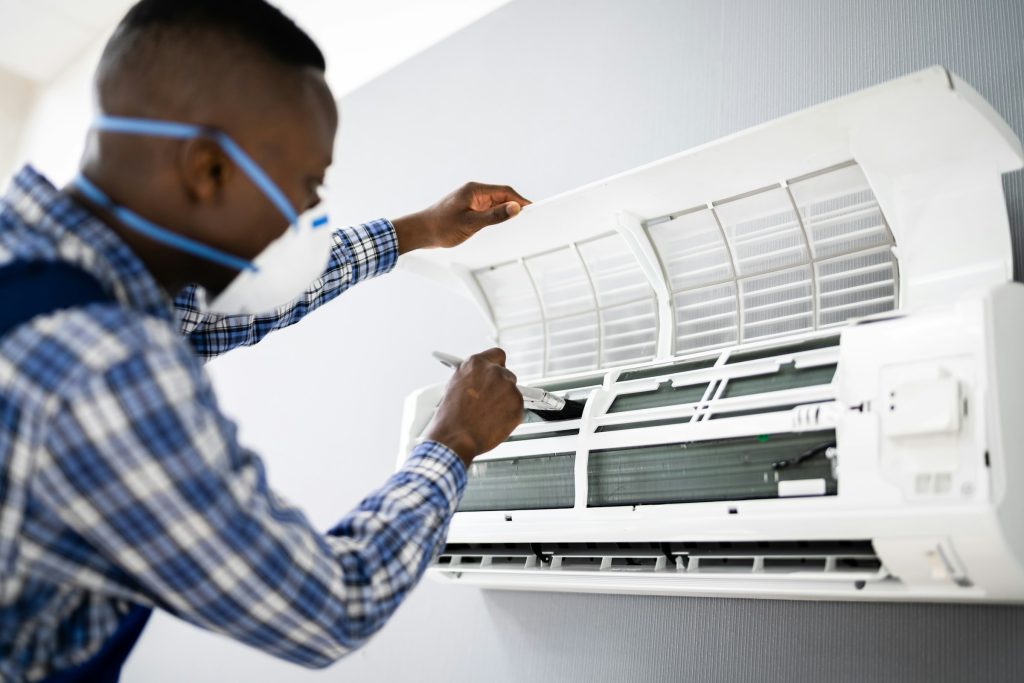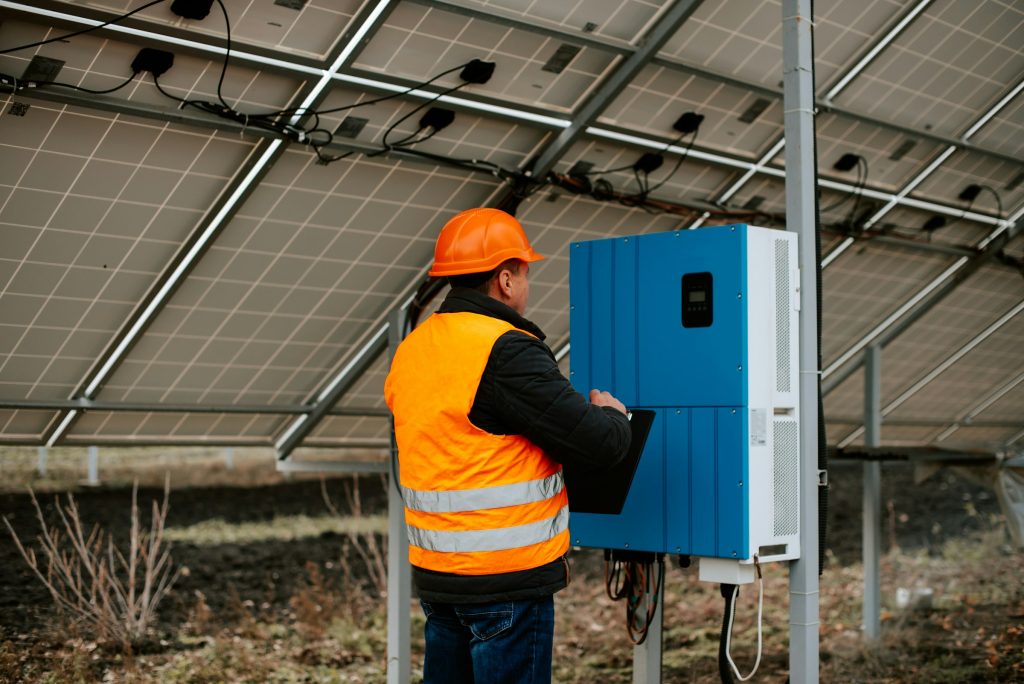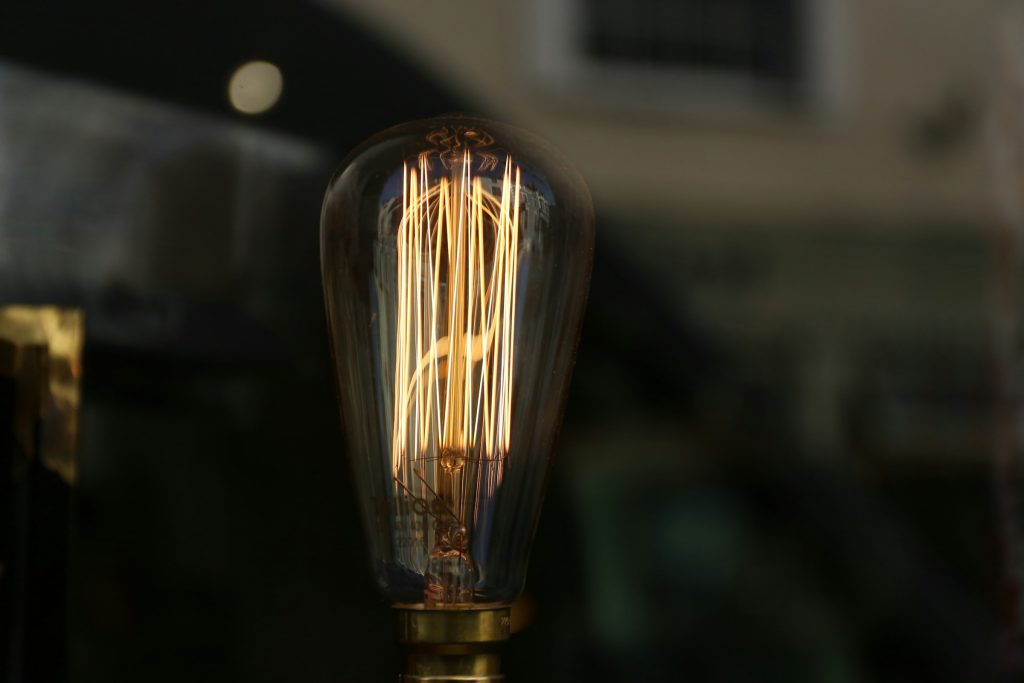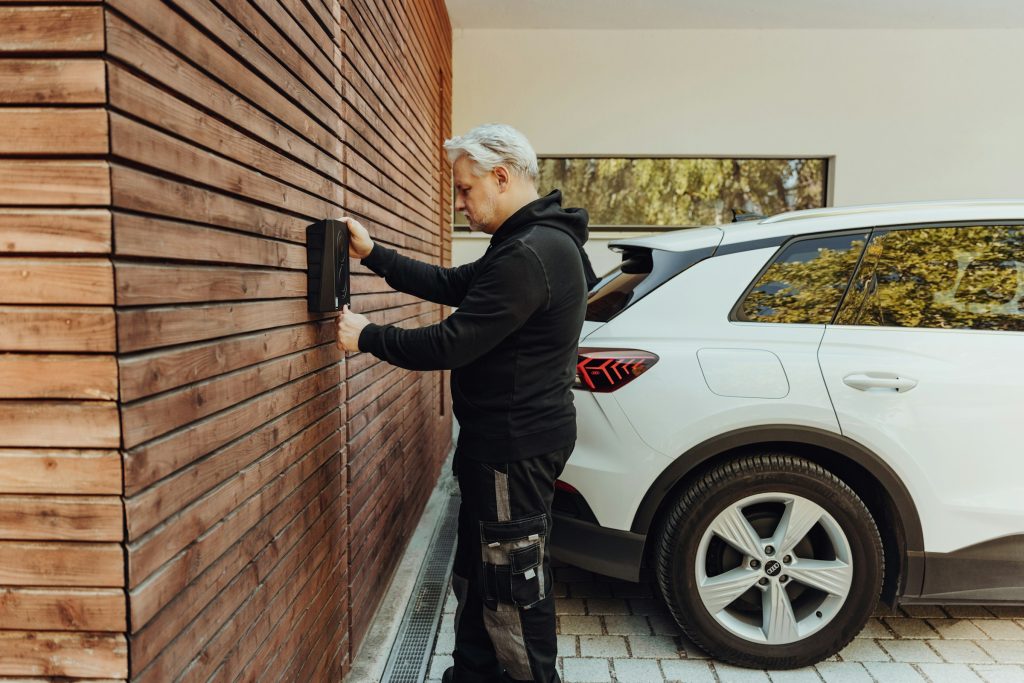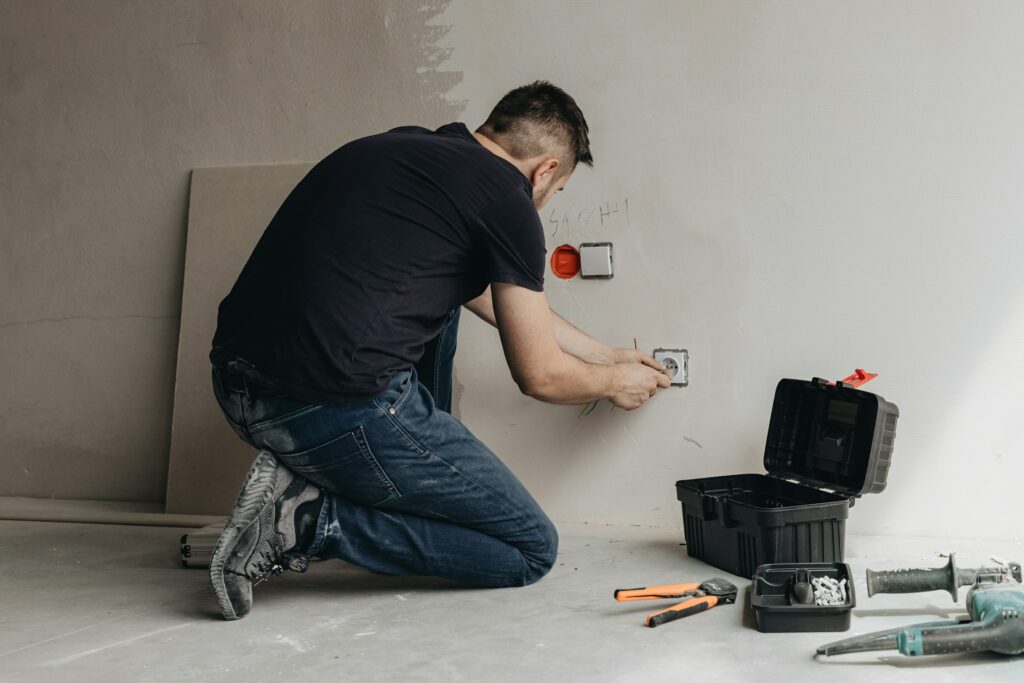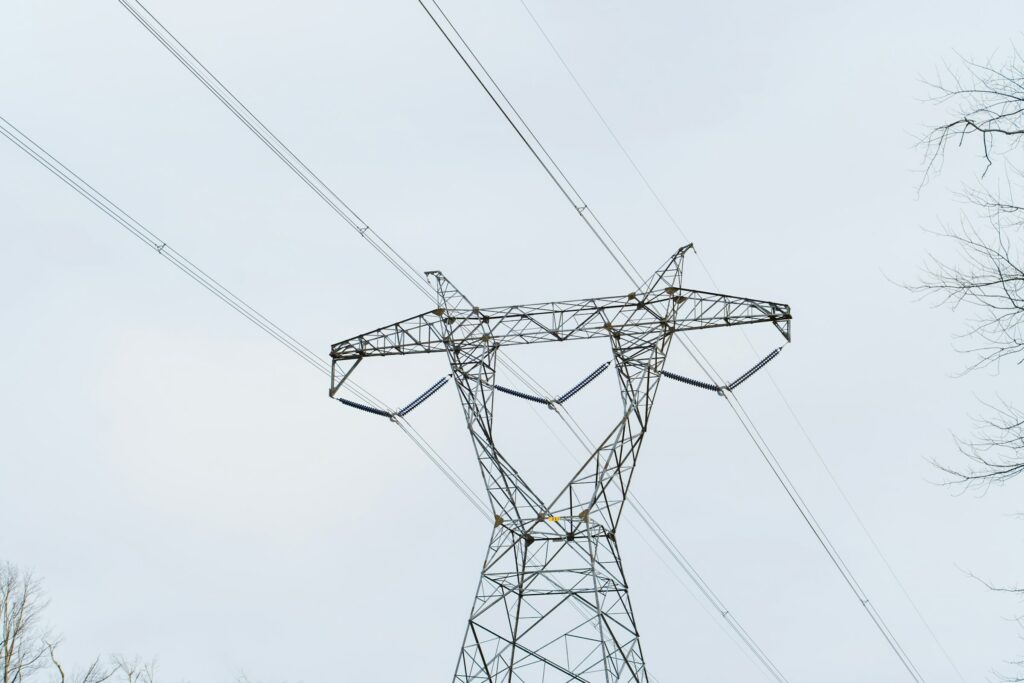Imagine sitting in your living room and, with a simple voice command, dimming the lights, changing the TV channel, or adjusting the heating. This is no longer a scene from a sci-fi movie but a reality of modern intelligent homes. This article aims to explain the concept of home automation or ‘smart homes,’ and demonstrate an electrician’s indispensable role in making a home ‘intelligent.’
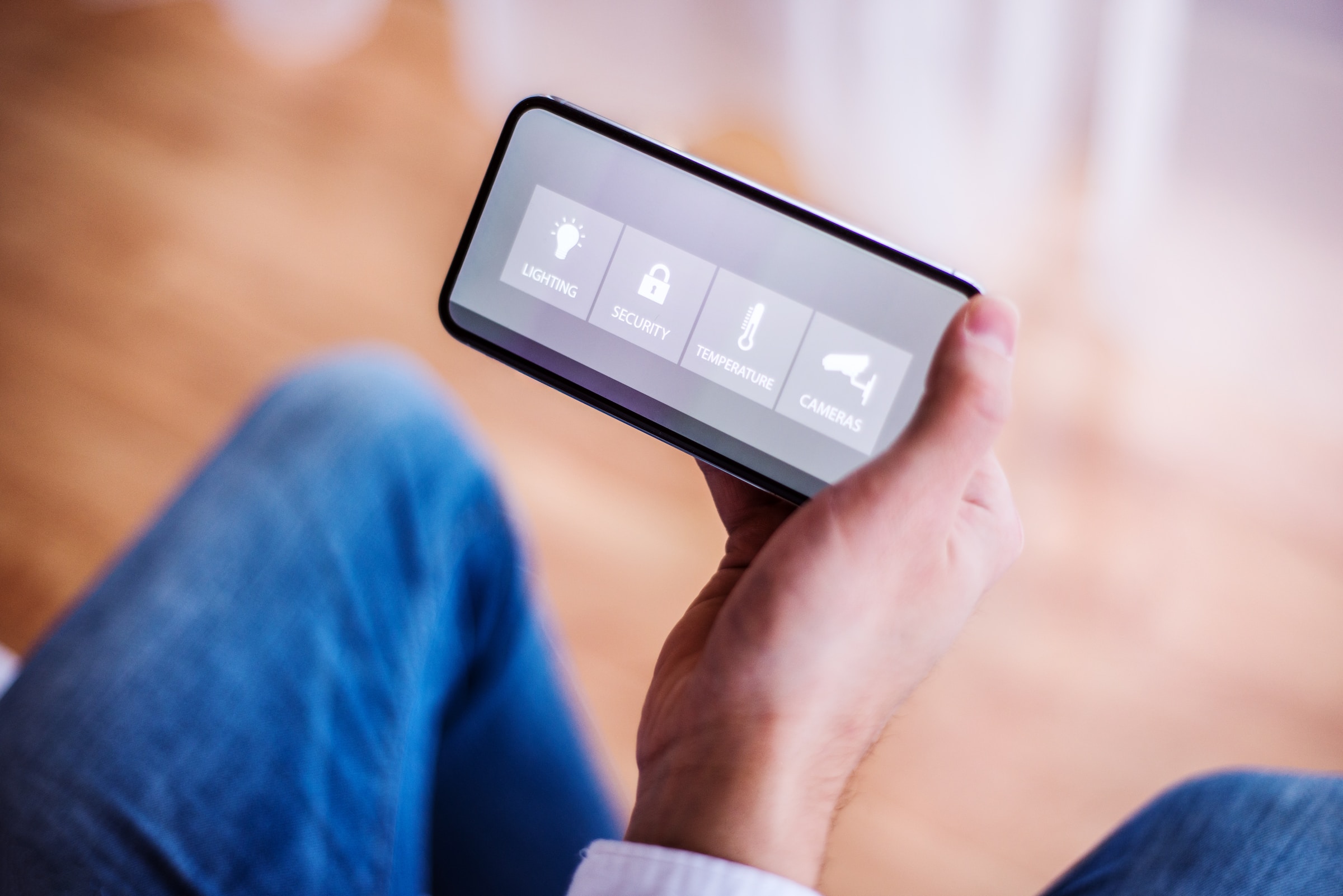
Importance of Home Automation
Home Automation, also known as a ‘smart home,’ leverages the Internet of Things (IoT) technology to automate and control various household systems, such as lighting, heating, and entertainment devices.
This technological advancement offers benefits, primarily around comfort, safety, and energy efficiency. Picture this, you’re on your way home from work, and you adjust your central heating to make your house toasty warm for your arrival – that’s the exclusivity of comfort home automation brings on board.
An example that perfectly epitomises the safety feature is an automatic locking system that ensures your doors are always locked, providing added security. With home automation, energy efficiency is at the disposal of your hands or voice. You can conveniently switch off any lights or electrical appliances left on mistakenly, hence promoting responsible energy consumption. Here’s an infographic highlighting more benefits home automation could offer every household.
Role of an Electrician in Home Automation
Certainly, we can’t float in the praises of home automation without taking a moment to appreciate the hands that make it possible – Electricians. The transformation of homes into intelligent spaces demands specialised skills, expertise, and experience that electricians expertly wield.
They handle the nuts and bolts of installations, maintenance, and system updates, closely adhering to national safety regulations. Electricians often face several challenges, including complex installations, troubleshooting issues, and staying up-to-date with rapidly evolving IoT technologies. Expanding their knowledge base and constantly updating their skills is thus important. These aspects of an electrician’s role can be best depicted in the following diagram.
Home Automation and Energy Efficiency
Home automation contributes significantly to energy efficiency by offering complete control over your household systems, even remotely. This means you can switch off lights, adjust thermostats, or turn off appliances that may have been mistakenly left on, hence reducing unnecessary energy consumption.
Future Trends in Home Automation
Home automation technology is advancing at a dizzying pace. The future promises even more exciting trends aiming to add convenience and control in our homes. From including AI to making intelligent predictions based on your preferences and habits to the advancement in sensor technologies that could potentially automate every corner of your home, the future of home automation is certainly something to look forward to.
Frequently Asked Questions:
What Role does an Electrician Play in Home Automation?
The role of an electrician in home automation is crucial. Electricians are responsible for the home automation technology’s installation, maintenance, and system updates, ensuring their work adheres to national safety regulations. This can involve complex installations, troubleshooting issues, and keeping up-to-date with the rapidly evolving IoT technologies.
What Kinds of Home Devices can be Automated?
A variety of home devices can be automated, from the basics like lighting, heating and cooling systems, and home security gadgets, to more complex systems like smart appliances, entertainment systems, and even irrigation and outdoor systems. If it can connect to the Internet and be controlled remotely, it’s very likely it can be included in a home automation system.
What Challenges Does an Electrician Face in Home Automation?
Electricians face various challenges in home automation. These largely revolve around complex installations, troubleshooting issues, and the need to continuously update their skills as a result of rapidly evolving IoT technologies. However, these challenges are balanced by new learning opportunities and a widening work scope provided by these continuous technological advancements.
Conclusion
In summary, home automation is more than just a lifestyle trend; it’s an innovative way to increase comfort, safety, and energy efficiency in our homes. The role of an electrician in home automation cannot be undermined. With their expertise and prowess in handling technical complexities, electricians serve as the beating heart of any successful home automation project.
Despite the challenges, the silver lining is in the continuous technological advancements that provide new learning opportunities and diversify their work scope. As we look forward to a technologically infused future, the importance of an electrician in implementing home automation systems couldn’t be emphasised more.

